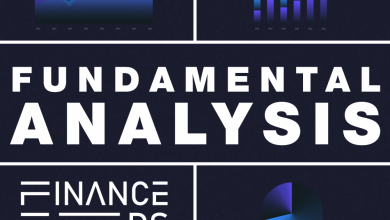How Blockchain Lessons Are Transforming Higher Education in Business and Finance


KEY TAKEAWAYS
- Blockchain integration is transforming business and finance education through decentralized learning and transparent systems.
- Universities are redesigning curricula to include blockchain fundamentals, DeFi, smart contracts, and tokenomics.
- Blockchain education cultivates vital 21st-century skills, technical literacy, entrepreneurial thinking, and regulatory awareness.
- Blockchain credentials enhance academic record verification and support lifelong learning through secure, tamper-proof systems.
- Students gain practical exposure to real-world digital economy tools, improving employability in fintech and related industries.
- Key challenges include inadequate infrastructure, limited educator training, and resistance to curricular change.
Blockchain lessons are profoundly transforming higher education, particularly in business and finance disciplines, by reshaping curricula, enhancing student skills, and aligning academic outcomes with real-world digital economy demands.
This article explores how blockchain integration in higher education is fostering innovation in curriculum design, promoting self-reliance among students, expanding career opportunities, and addressing the challenges that institutions face in adopting this disruptive technology.
The Rise of Blockchain in Business and Finance Education
empowers decentralized, secure, and transparent systems that transform value platform in business transactions without intermediaries. This disruption is comparable to the transformational impact of the internet on global information platform and trade.
With blockchain’s increasing adoption across financial services, supply chains, auditing, and digital marketing, higher education institutions, particularly business schools, are called to lead in blockchain research, curriculum development, and talent preparation.
Universities are adapting by creating courses and programs focusing on blockchain fundamentals, decentralized finance (DeFi), , and blockchain application programming on platforms like ETH and Hyperledger.
For instance, the University of South Florida’s Muma College of Business offers specialized courses that blend blockchain technology knowledge with business application, preparing students for careers in emerging blockchain-driven industries such as and auditing.
These initiatives also demonstrate the interdisciplinary nature of blockchain, requiring knowledge in technology and domain-specific applications like supply chain management and digital marketing.
New Skills for a Changing Job Market
Employers in finance and business increasingly value practical skills that go beyond spreadsheets and PowerPoints. brings a suite of competencies that match market demand:
- Technical literacy: Understanding distributed ledgers, hashing, and smart contracts enough to collaborate with engineers or evaluate technology vendors.
- Product Design: Translating business goals into tokenomics, governance models, or stablecoin frameworks.
- Regulatory Awareness: Navigating a quick-moving legal landscape and assessing compliance risk.
- Data Provenance and Auditing: Using immutable ledgers to verify transaction histories and reduce fraud.
- Interdisciplinary Communication: Explaining technical tradeoffs to non-technical stakeholders and vice versa.
Enhancing Curriculum and Skills for a Digital Economy
Integrating blockchain technology into finance and modernizes educational content by embedding digital competencies and real-world business practices. Blockchain-enabled curriculum redesign improves alignment with industry needs by introducing students to secure, tamper-proof record-keeping, transparent academic processes, and decentralized learning platforms.
Research at Delta State University, Abraka, Nigeria, highlights that blockchain integration makes business program curricula relevant to contemporary digital skills, enhances transparency in academic delivery, and encourages the development of entrepreneurial mindsets and self-reliance among students.
The study found strong positive correlations between blockchain curriculum adoption and students’ development of practical skills, entrepreneurial thinking, and job readiness later than graduation.
Students exposed to blockchain education gain capabilities to understand incentive design in blockchain systems, economics of cryptocurrencies, and decentralized finance, and crucial areas in today’s business landscape.
This practical knowledge fosters critical thinking, entrepreneurial action, and the ability to operate effectively in decentralized environments, assisting graduates stand out in a competitive job market.
Blockchain Credentials and Career Pathways
One of the quickest-growing impacts of blockchain in education is authenticating and verifiable student credentials using blockchain-based platforms.
These platforms provide immutable academic records, reducing fraud and streamlining verification processes for employers and institutions alike. This blockchain-enabled credentialing supports lifelong learning by enabling students to control and share their verified learning histories securely.
Moreover, blockchain education opens diverse career pathways in tech-driven finance and business sectors, including blockchain programming, business analysis, auditing, consulting, and entrepreneurship in decentralized finance.
Students with blockchain expertise are increasingly sought later than for roles involving blockchain application development, system integration, and strategic use of blockchain for business value creation.
Challenges in Implementation and Adoption
Despite the clear advantages, blockchain integration in higher education faces infrastructural limitations, funding constraints, and insufficient professional development opportunities for educators.
Institutions often struggle with digital infrastructure needs such as reliable internet, blockchain labs, and up-to-date technological resources. Training educators to develop blockchain literacy and instructional design capabilities is critical to sustainable integration.
Resistance to change and the complexity of incorporating blockchain into traditional curricula also pose barriers. Comprehensive institutional policies, continuous capacity building for faculty, and partnerships with technology providers are recommended to overcome these challenges effectively.
Policy and Strategic Recommendations
To maximize blockchain’s potential in business and finance education, institutions should:
- Develop clear policies supporting blockchain integration in curricula and administrative processes.
- Invest in digital infrastructure and create dedicated blockchain labs for hands-on learning experiences.
- Organize regular educator training and workshops on blockchain technology, digital pedagogy, and curriculum design.
- Introduce blockchain and decentralized finance courses with practical projects and certifications aligned with industry standards.
- Establish monitoring and evaluation frameworks to assess blockchain education outcomes and continuously improve programs based on feedback.
Long-term Impacts on the Discipline
As blockchain becomes integrated into business education, we’re likely to view long-term shifts in both research and practice. Faculty research agendas broaden to include decentralised governance, cryptoeconomics, and the intersection of token design with organisational behavior.
Financial theory itself may evolve as and programmable contracts create new market structures and instruments.
Graduates entering the workforce carry this systems mindset into banks, regulators, beginups, and consultancies. Over time, those workplaces will change too: hiring practices, risk frameworks, and product pipelines will incorporate competencies that were once marginal and are now core.
A Transformative Educational Paradigm
Blockchain lessons are transforming higher education in business and finance by equipping students with the skills, mindset, and credentials required for future digital economies.
This transformation fosters transparency, security, relevance, and self-reliance in education, emerging as a powerful strategy to bridge the gap between academic knowledge and evolving industry demands.
As the blockchain revolution reshapes global business practices, higher education institutions that proactively integrate blockchain into their curricula will lead in producing graduates ready to innovate and thrive in decentralized digital economies.
Addressing infrastructural and training challenges will be crucial to sustaining this educational evolution and reaping blockchain’s full benefits in business and finance education.
FAQ
Why is blockchain significant in business and finance education?
Blockchain introduces transparency, decentralization, and security, which are core features driving innovation in finance. Integrating it into education ensures graduates understand the technologies shaping tomorrow’s economy.
How are universities incorporating blockchain into their curricula?
Institutions are offering specialized courses and programs on blockchain fundamentals, smart contracts, decentralized finance (DeFi), and blockchain application programming using platforms like ETH and Hyperledger.
What skills do students gain from blockchain education?
Students develop technical literacy in distributed ledgers, product design, tokenomics, regulatory compliance, and interdisciplinary communication, which are skills that are increasingly demanded in fintech, auditing, and consulting roles.
How do blockchain-based credentials benefit students and employers?
Blockchain credentials provide secure, verifiable records of academic achievements, reducing fraud and simplifying background checks for employers while giving students lifelong control of their learning data.
What are the main challenges institutions face in adopting blockchain?
Common hurdles include limited funding, insufficient technical infrastructure, lack of trained faculty, and resistance to educational change within traditional academic systems.
How can schools overcome these challenges?
By investing in digital infrastructure, forming partnerships with blockchain firms, training educators, and developing clear institutional policies that encourage curriculum innovation.






